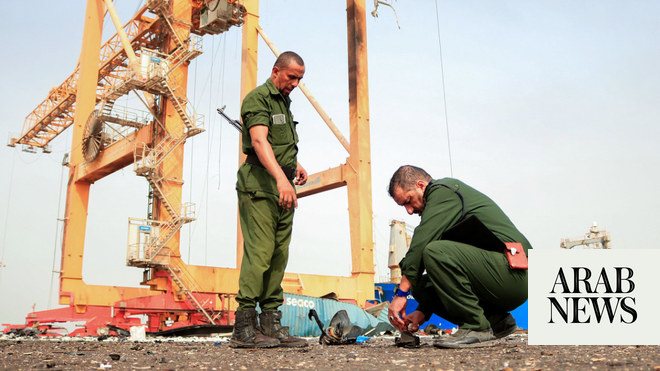ATHENS/QAMISHLI, Syria: Since 2022, senior Syrian and Turkish officials have been meeting periodically in Moscow for talks mediated by Russia. But these meetings failed to soften their relationship.
It is a different matter now, Turkish President Recep Tayyip Erdogan has announced his desire to restore normal relations with his Syrian counterpart, Bashar Assad.
He said earlier this month that he could invite Assad to Turkey “at any time”, to which the Syrian leader replied that any meeting would depend on “content”.
Ankara and Damascus cut diplomatic ties in 2011 following the outbreak of the Syrian civil war. Relations have remained strained ever since, particularly as Turkey continues to support armed groups opposed to the Assad regime.

Since the outbreak of the civil war in 2011, Turkey has supported armed Syrian factions in their fight against the regime of President Bashar Assad. (AFP)
So what is the motivation to change course now? And what could be the consequences of the normalization of Turkish-Syrian ties?
Syrian writer and political researcher Shoresh Darwish believes that President Erdogan is seeking legalization for two reasons. “The first is to prepare for the possibility of a new American administration led by Donald Trump, which means a possible return to the policy of (US) withdrawal in Syria,” he told Arab News.
“So Erdogan needs to work with Assad and Russia.”
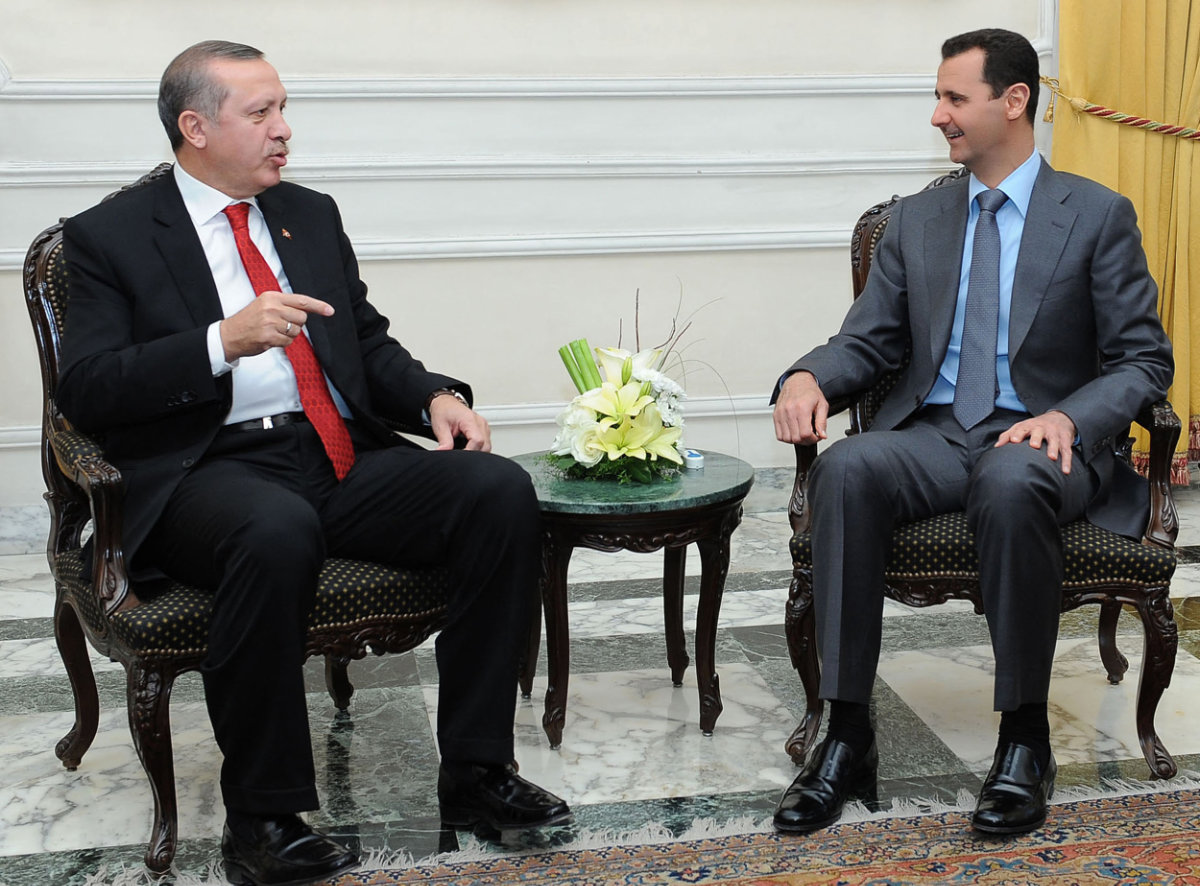
This photo released by the Syrian Arab News Agency shows President Bashar Assad (R) meeting with Turkish Prime Minister Recep Tayyip Erdogan in Aleppo. (SANA/AFP)
The second reason, Darwish said, is Erdogan's desire to get closer to the Syrian regime's ally Russia after Turkey's retreat to the United States following the outbreak of war in Ukraine. Indeed, as a NATO member state, the conflict has complicated Turkey's usual balancing act in its relations with Washington and Moscow.
“Ankara's cooperation with Moscow on the Ukrainian issue is difficult,” Darwish said. “Given the significant Western intervention in this issue, their cooperation in Syria represents a meeting that Erdogan wants to emphasize his friendship with Putin and Moscow's interests in the Middle East.” .
Those in northwestern Syria, supported by Turkey, see Ankara's rapprochement with Damascus as a betrayal.

Protesters in opposition-held Idlib and Aleppo countryside wave the flag of the Syrian revolution and hold signs that read: 'If you want to get close to Assad, congratulations, the curse of history is upon you' .' (Photo by Ali Ali)
During one of the many protests in Idlib since early July, protesters held signs in Arabic that read: “If you want to get closer to Assad, congratulations, the curse of history has come upon you.”
Abdulkarim Omar, a political activist from Idlib, told Arab News: “West Syria, Idlib, the countryside of Aleppo, and all areas of the opposition completely reject this move because it does not benefit the Syrian regime.” it's just that.
“The Syrian people came out 13 years ago and rose up in a revolution demanding freedom, dignity and the establishment of a civil and democratic state for all Syrians. This can only be achieved by overthrowing the brutal Syrian regime represented by Bashar Assad. They are still clinging to that concept and those slogans and they can't get away from it.”
Those who live in areas controlled by the Kurdish-led and US-backed Autonomous Region in the North and East, or AANES, which occupies most of Syria's territory east of the Euphrates, is also wary of the effects of normalization.
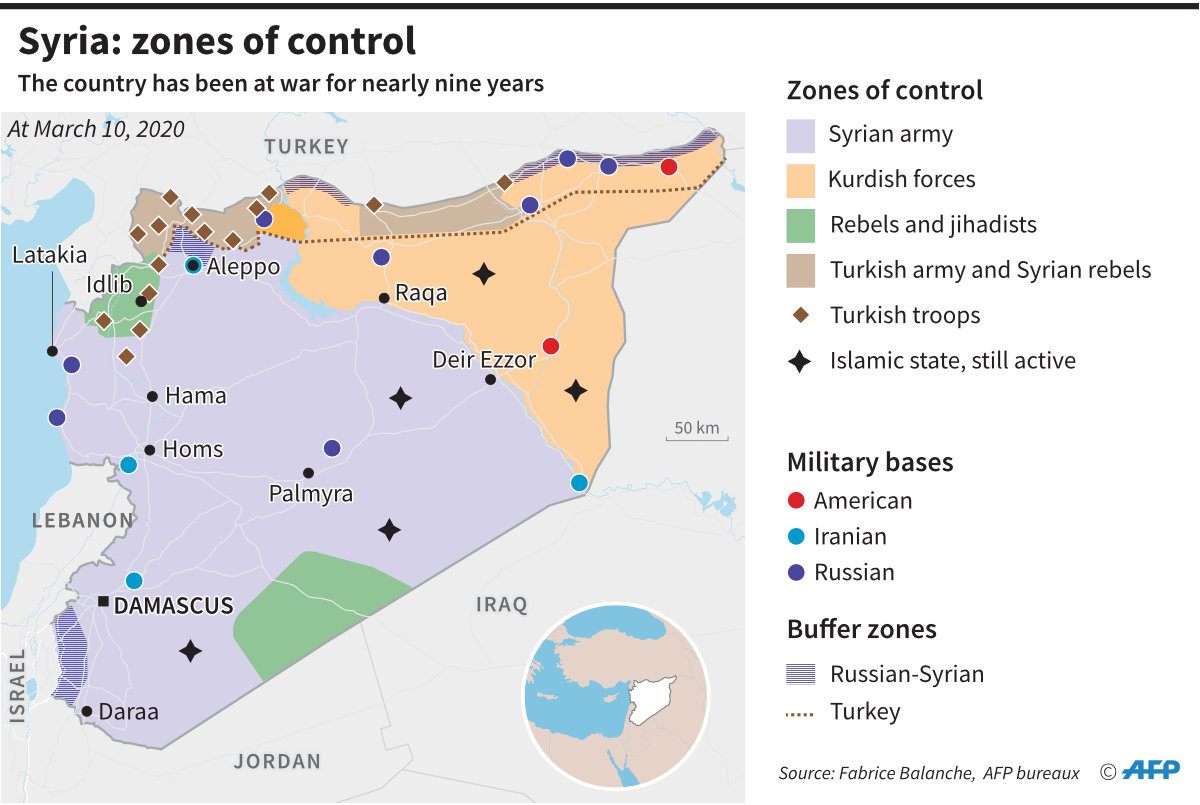
A map of Syria showing areas controlled by different actors in late 2020. Turkish forces have captured some towns under the control of the Kurdish-led Syrian Democratic Forces. (AFP/File)
“There is a fear among the population that the reconciliation could be a prelude to punishing the Syrian Kurds for their political choices,” said Omar.
The invasion of Syria from 2016 to 2019 saw Turkiye take control of several cities, most of which were under the control of AANES.
Turkey's justification for its entry in 2018 and 2019 and its continued presence in Syrian territory is its aim to establish a “safe zone” between itself and the armed forces of the AANES — the Syrian Democratic Army.

A member of the Syrian Kurdish Asayish security forces stands guard as mourners march during the funeral of two Kurdish women killed in a Turkish drone strike in Hasakah, northeastern Syria, June 21, 2023. (AFP) )
Turkey views the SDF as the Syrian wing of the Kurdistan Workers' Party, or PKK, a group that has been in conflict with the Turkish state since the 1980s.
“Of course, the Syrian Kurds know that they will be part of the deal that Erdogan wants to conclude with Assad,” Darwish said. “This issue is painful for the Syrian Kurds, who see Turkey ready to do anything to destroy them and their experience of self-governance.”
Darwish said the Syrian Kurds would accept reconciliation on three conditions. First they want to see Turkiye withdraw its troops from Afrin and Ras Al-Ain. Second, an end to Turkish strikes in the AANES region. And third, a guarantee from the Assad regime “that the Syrian Kurds will enjoy their rights to their country, culture and administration.”
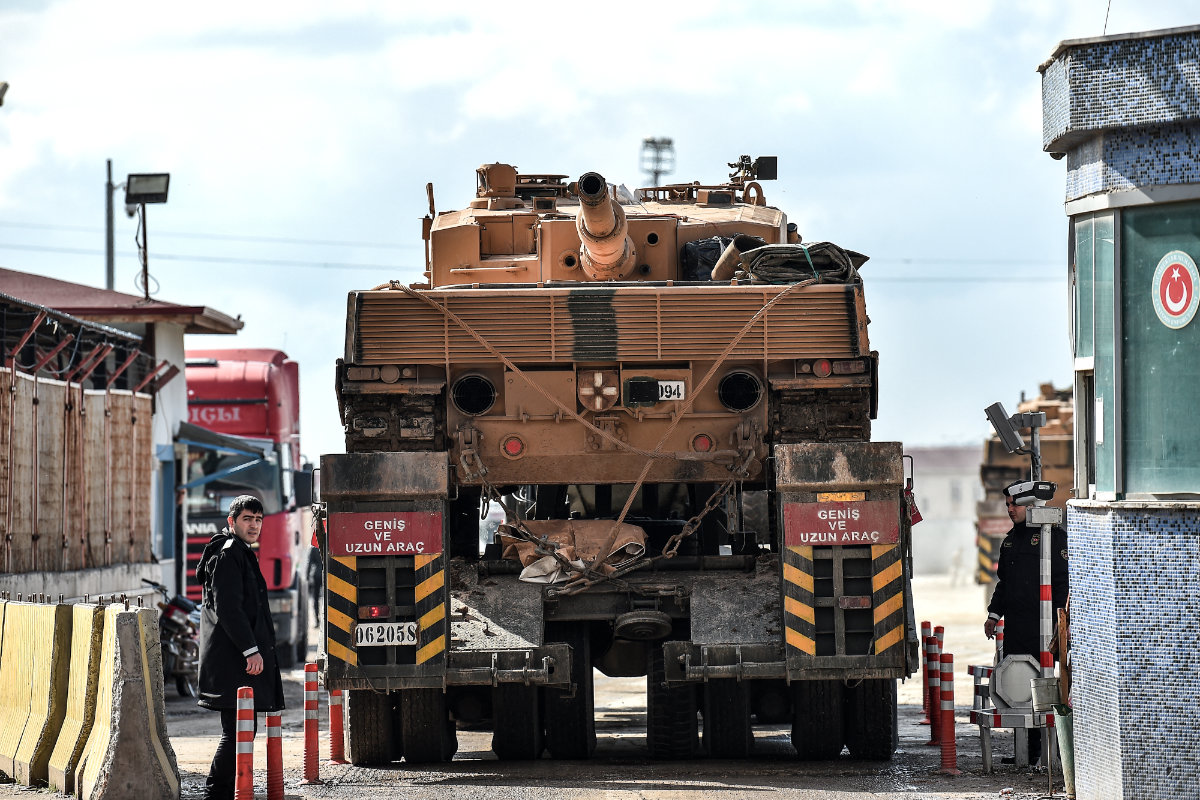
In this photo taken on January 27, 2018, a Turkish army convoy walks through the Oncupinar border crossing as soldiers enter Syria during a military campaign in the Syrian territory controlled by the Kurds in Afrin. (AFP/File)
But how can there be a rapprochement between Ankara and Damascus? Not so much, according to war analyst and UNHRC delegate Thoreau Redcrow. “I find the involvement of Erdogan and Assad very unlikely,” he told Arab News.
“Historically, Turkiye's idea of 'control' over Syria is tantamount to a one-way policy for Ankara's interests. In this arrangement, Turkiye continued to occupy Hatay (Liwa Iskenderun), which they had captured from Syria in 1938, and to claim military access to its sovereignty, as in the Adana Agreement of 1998, but gave nothing in return.
Assad has made it clear in public statements that the meeting between him and Erdogan will only take place on the condition of withdrawing from Syrian territory. Redcrow believes that Turkiye has no intention of leaving.
“I don't see any interest in distorting Damascus by taking pictures,” he said. “The Syrian government is far more proud than some of the other regional actors who are happy to be one of Turkiye's 'neo-Ottoman vilayets'.”
Erdogan may be trying to take advantage of the trend towards normalization among Arab countries, which he began in earnest with the return of Syria to the Arab league last year. However, the European states and the United States are still divided.
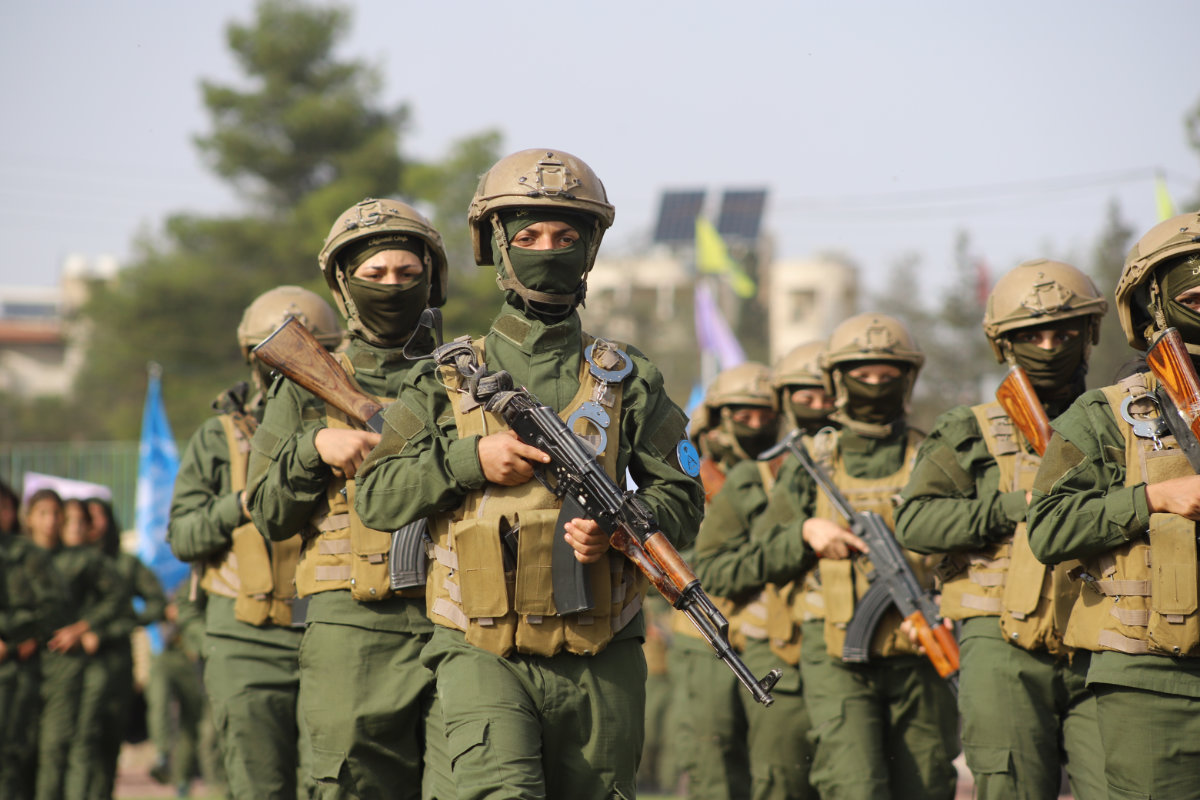
Syrian female soldiers march in opposition-held territory in northern Syria. (Photo by Ali Ali)
“While Germany, France, Italy, and the UK in particular are more focused on how Turkey can control the gateway to Europe and act as a 'continental bouncer' for refugees from the Middle East and West Asia, the United States is more focused on denial. Russia and Iran are able to gain full access to all of Syria again for strategic reasons, such as access to the Mediterranean Sea and the 'Shiite land bridge' from Tehran to Beirut,” said Redcrow.
“The current status quo is more beneficial to Washington than any reconciliation, because it could endanger the northeastern part of Syria, where the US forces are located with reliable military partners especially against Daesh in the SDF. Therefore, Turkiye will not be given any kind of green light to endanger American interests.”
The U.S. Senate in February passed the Assad Regime Decriminalization Act of 2023, which prohibits any decriminalization of Assad. In a post on the social media platform X on July 12, the author of the bill, Rep. Joe Wilson, and compared it to “recovery with death”.
Although there is little chance of reconciliation succeeding at this point, the approximately 3.18 million Syrian refugees living in Turkiye see even rumors of normalization with fear and dread.
“People are very afraid,” Amal Hayat, a Syrian mother of five who lives in southeastern Turkey, told Arab News. “Since the rumors (of reconciliation) started, many people are not even leaving their homes. Even if their boss beats them at work, they are afraid to say anything for fear of being fired”.
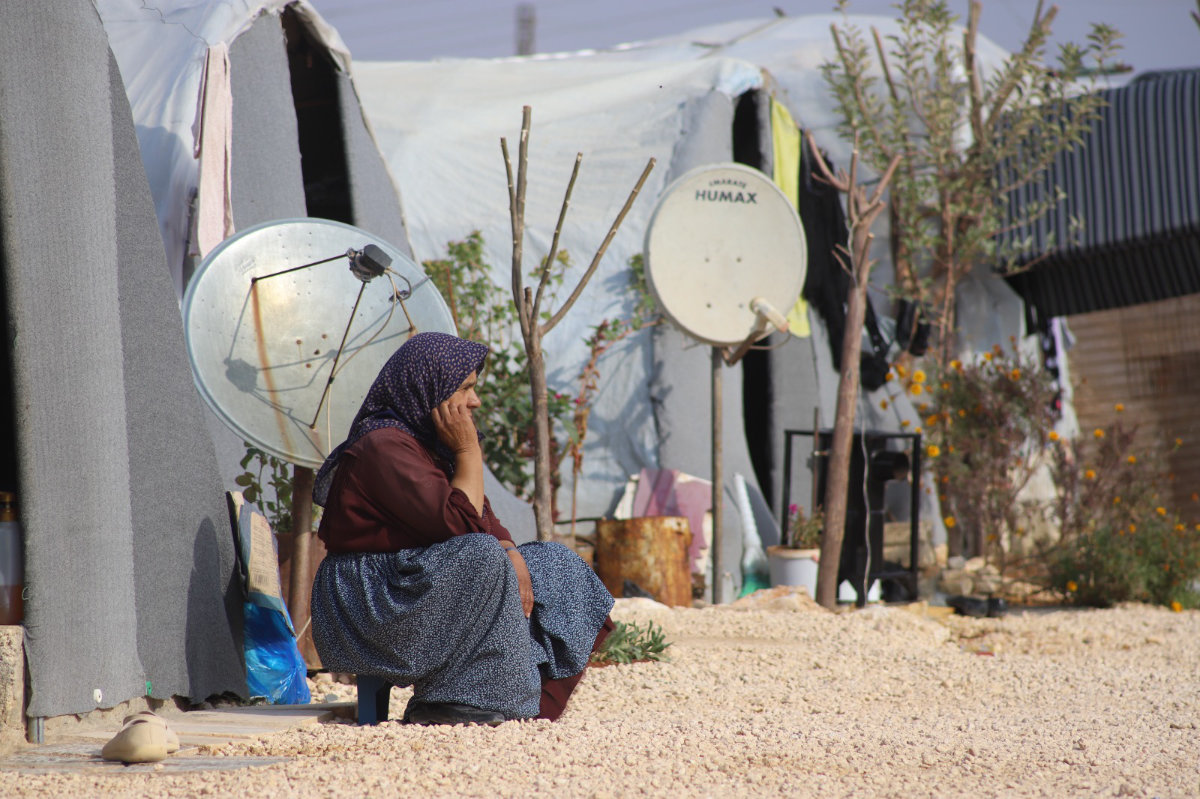
A Syrian woman is seen in a refugee camp near the Syrian-Turkish border. (Photo by Ali Ali)
Turkish authorities expelled more than 57,000 Syrians in 2023, according to Human Rights Watch.
“The forced return will affect us a lot,” Hayat said. “For example, if a woman returns to Syria with her family, her husband may be arrested by the regime. Or if a man is expelled from Syria and his wife and children stay in Turkey, what will they do? Difficult. Here our children can learn. They have stability and security. “
Fears of deportation have been compounded by a wave of violence against Syrian refugees that has swept southern Turkey in recent weeks. On June 30, residents of Kayseri province in central Turkey attacked Syrians and their property.
Anti-Syrian sentiment in Turkey is partly due to economic issues, where Turks see underpaid or unpaid Syrians as a threat to their job prospects.
“The Turks are very happy that we are back home,” said Hayat. “For them, it will not be long. We all live under increasing stress. We just pray that they (Assad and Erdogan) do not make peace.

